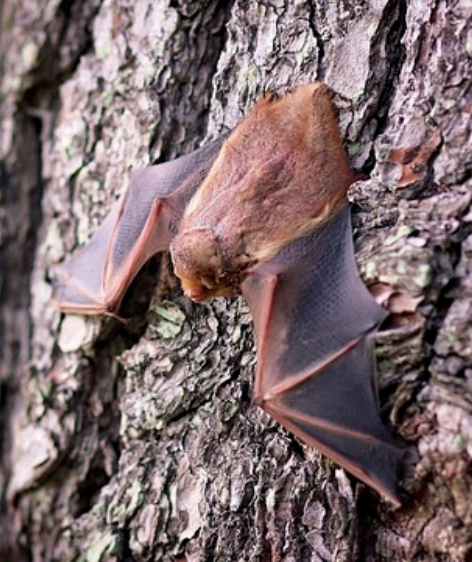Rabies, Bats, and Animal Bites
The possibility of rabies in domestic or wild animals is very unlikely in Washington, though it is still important to vaccinate your pets. Raccoons, skunks, and foxes are known to have rabies across the country, at low rates, and are considered rabid unless proven negative by a lab test. In developing countries worldwide, dogs are the principal animal in which rabies is found.
Rabies is almost always deadly once the virus attacks your body, but you can receive preventive treatment if you've been bitten or scratched by a bat or other potentially rabid animal.
Lewis County has had no cases of rabies is nearly 30 years. Each year, however, Lewis County Public Health and Social Services receives calls from residents to 1) assess potential exposure to rabies and 2) ensure treatment for rabies is established for residents that have been determined to be exposed to rabies in Lewis County or elsewhere.
Quick Info Series: Rabies in Lewis County

What is Considered a Potential Rabies Exposure?
- A bite, scratch, or mucous membrane exposure from a bat or other rabid-acting carnivore
- Finding a bat in the room when waking up
- Finding a bat in the room with an unattended small child, an immobile, intoxicated or mentally incapacitated person, or a pet
Touching a mammal's fur, wings, blood, feces, or urine is NOT a potential exposure.
What to do if You Suspect a Rabies Exposure
Call Lewis County Public Health and Social Serivces, 360-740-1223, only if there has been potential human exposure. We will determine if there has been a true rabies exposure and if rabies testing is needed.
Bat Exposures
Bat exposures require special consideration as bats are the only known reservoir in Washington State. Most bats are harmless, but approximately 1% of bats in the wild are infected with the rabies virus. For more information on rabies activity in Washington state, visit Washington State Department of Health's Rabies Activity in Washington.
If you suspect that a bat has bitten, scratched, or had direct contact with fresh wounds or mucous membranes, call 360-740-1223 to speak with our staff for a rabies exposure assessment. In the meantime, do not touch the bat with bare hands. If capturing the bat for testing is recommended, follow the instructions for Safely Capturing Bats for Rabies Testing.
If you have been exposed to a bite or scratch from a bat or other rabid-acting carnivore, go to your primary care provider or emergency room for medical attention and post-exposure rabies vaccinations. Your healthcare provider or ER provider should contact Lewis County Public Health and Social Services if there is suspicion of rabies exposure.
An exposure assessment is necessary when a bat is found in the same room with a person who cannot say that exposure did not occur to include an unattended child, intoxicated adult, or sleeping person(s).
What if My Pet is Exposed?
Pet-only exposure is NOT reportable to Lewis County Public Health and Social Services.
If you believe your pet has been exposed, contact your veterinarian for further assessment and obtain a rabies booster vaccination for your pet, even if your pet is vaccinated.
If you have the animal that may have rabies, you can pay to have rabies testing done on the animal by calling the Washington Animal Disease Diagnostic Lab, (509) 335-9696, or the Oregon State University Veterinary Diagnostic Lab, (541)737-3261, for more information.
If you do not have the animal that may have rabies for testing,
- And your exposed dog/cat/ferret is currently vaccinated, or your dog/cat has ever been vaccinated:
- Immediately take your pet to the veterinarian for a booster rabies vaccination, within 96 hours of the exposure;
- Confine your pet for close observation for 45 days, they should not have contact with people or animals outside of its household;
- Observe for signs of rabies (below);
- If exposed ferret is overdue for vaccination, they should be evaluated on a case-by-case basis - they are generally considered unvaccinated.
- And your exposed dog/cat has never been vaccinated against rabies:
- Consider euthanasia OR set up strict quarantine for 120 days (dog/cat) or 180 days (ferret);
- Administer rabies vaccination at the time of entry into quarantine (not to exceed 96 hours post exposure);
- Observe for signs of rabies (below).
- Livestock currently vaccinated should be revaccinated immediately and observed for 45 days following exposure; livestock never vaccinated should be euthanized immediately OR confined and observed on a case-by-case basis for 6 months.
- Lethargy
- Fever
- Vomiting
- Anorexia/loss of appetite
- Weakness/paralysis
- Problems swallowing
- Excessive saliva
- Foaming at the mouth
- Biting at imaginary objects
- Anxious behaviors Aggressive behaviors
- Disorientation/loss of coordination/staggering hind legs
